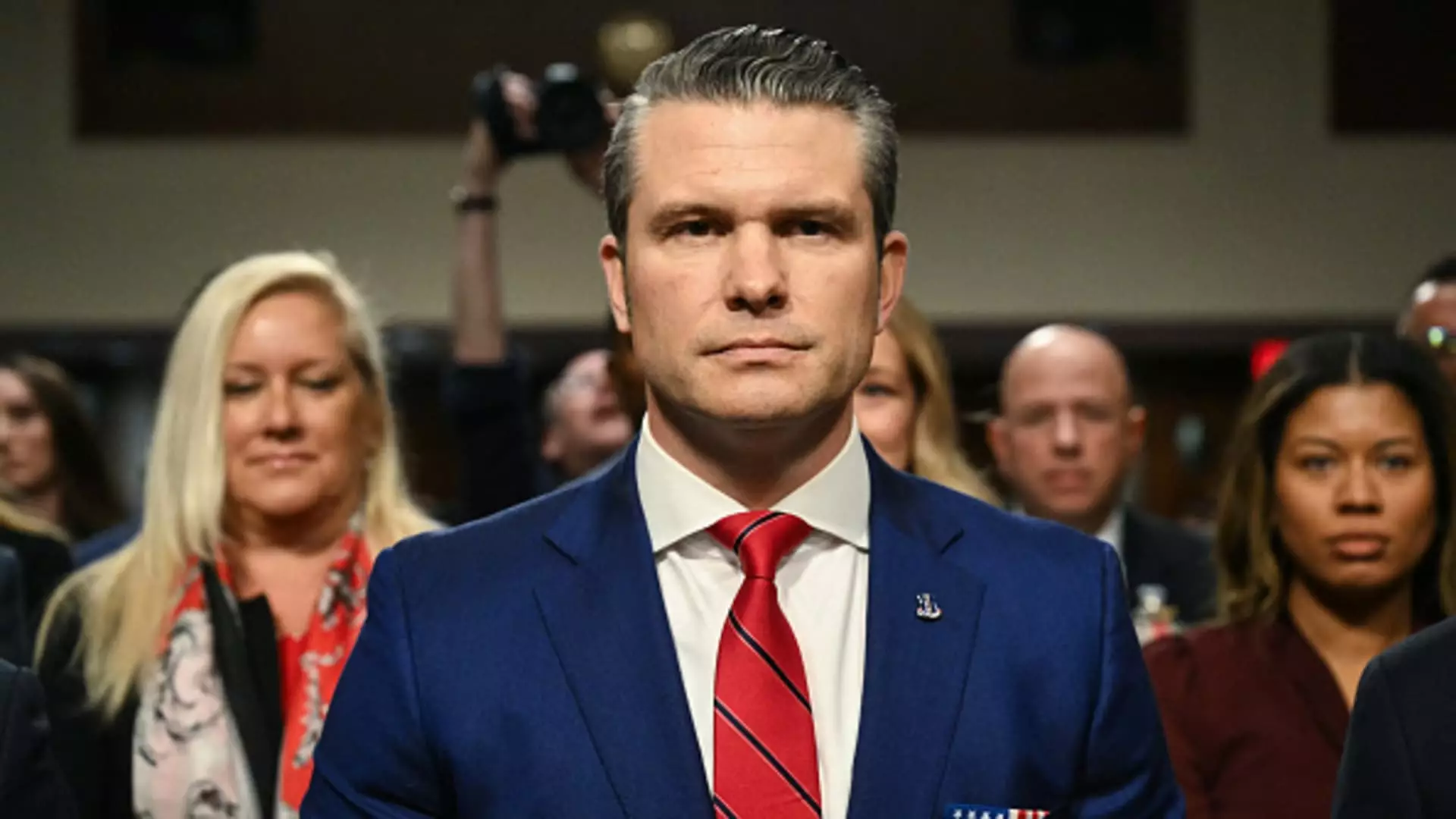The ongoing discussion about Pete Hegseth’s nomination as Secretary of Defense underscores a significant cultural and political divide within the current U.S. government. The Senate, despite being led by Republicans, faced hurdles in advancing Hegseth’s confirmation due to serious allegations and contrasting ideologies regarding military leadership. This article examines the multifaceted implications of Hegseth’s nomination, the challenges faced by Republican senators, and how this situation reflects broader trends in American military and political culture.
As the Senate approached a critical vote, it became evident that Hegseth’s nomination was emblematic of deeper ideological struggles within the party and country. His credentials as a combat veteran and former Fox News host idealized him for the position according to some Republican senators. Yet, allegations of aggressive behavior and heavy drinking overshadowed his military service and sparked a series of debates about character and suitability for high office. This duality encapsulates the broader clash between traditional norms and contemporary expectations in political leadership.
Amid the nomination proceedings, Senate Majority Leader John Thune presented a narrative that emphasized Hegseth’s military background as essential to fostering a “warrior culture” at the Pentagon. This rhetoric reflects an idealistic vision for military leadership—one that prioritizes aggression and combat readiness over a more nuanced understanding of leadership that incorporates diversity and inclusion. Thune’s comments, such as the dismissal of “woke distractions,” demonstrate how certain factions within the Republican party are keen to disavow progressive ideas that have gained traction in recent years.
The nomination process also serves as a litmus test for former President Donald Trump’s enduring influence over the Republican party. Trump’s public support for Hegseth and critiques of dissenting senators reveal the contentious dynamics at play. Murkowski and Collins, who signaled their opposition to Hegseth, found themselves at odds not only with the president but also with a segment of their party that views loyalty to Trump as paramount. This scenario illustrates the extent of Trump’s power to dictate party alignment, even amid controversies involving his nominees.
Beyond loyalty, the Hegseth nomination also raises questions about the Republicans’ ability to manage their internal dynamics while addressing criticisms from the Democratic minority. Democratic senators, often unified in their opposition, highlighted the potential consequences of Hegseth’s confirmation for military culture, particularly in relation to the treatment of women. This conflict of values, wherein allegations of past behaviors are weighed against a nostalgic militaristic ideal, reflects a broader societal struggle over gender roles and expectations in the armed forces.
The allegations against Hegseth are troubling and multifaceted, comprising accusations of sexual misconduct and abusive behavior towards former partners. The veracity of these claims not only affects the nominee but also reverberates through the political landscape, impacting how the military is perceived and how its leaders are expected to act. Hegseth’s strong denials, coupled with his assertions that there is a “smear campaign” against him, highlight the complexities of navigating accusations within political arenas.
Senators like Chris Murphy of Connecticut voiced a strong reprimand of Hegseth’s nomination based on these allegations, labeling him “dangerously and woefully unqualified.” Such opposition underscores the accountability that high-ranking officials must face—a scrutiny that can significantly influence public perception and confidence in military leadership. Yet, with a Republican majority that seeks to affirm Trump’s vision, the standards for confirmation might be shifting, raising questions about integrity and fitness for service.
Hegseth’s nomination, and the surrounding debate, signals a pivot towards a new era of military leadership—one that seemingly favors an aggressive posture over progressive values. This transformation calls into question the role of diversity, equity, and inclusion initiatives that are pivotal to modern military engagement. The growing tension between tradition and change is palpable, as Hegseth’s confirmation would likely erase years of progress towards fostering an inclusive environment within the armed forces.
Moreover, the juxtaposition of Hegseth’s past comments regarding women in combat roles against the backdrop of his ascent to a position meant to lead a diverse military workforce raises significant ethical concerns. As senators debate the qualifications and behaviors of nominees, one has to wonder what message is ultimately being sent to current and aspiring service members regarding the principles of equity and mutual respect in the military.
As Pete Hegseth’s nomination as Secretary of Defense rests in the balance, it serves as a critical touchpoint for an examination of military culture, party allegiance, and the ethical implications of leadership in today’s political climate. The outcome of this nomination will not only shape the Pentagon’s immediate future but also set a precedent for how America’s military leaders are chosen and what values they will embody moving forward.


Leave a Reply